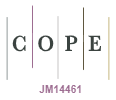“THE BECOME WHO YOU ARE”: ITS RELATION WITH THE EDUCATION YOURSELF”
DOI:
https://doi.org/10.5585/eccos.n27.2295Keywords:
Educação, Ciências HumanasAbstract
ABSTRACT: It is not possible to deny that the dominant formation in the teaching institutions is still the technical-scientific and moralist pedagogy. The pedagogic discourse is one that should keep the students under control, in which the distance between teacher and student is a perspective of the objectification of teaching in education for the requirements, social utility, under the pretension of absolute truths and certainties. This form of pedagogy introduces a kind of arrogance in those who know – the teachers – and imposes limits for those who do not know – the students. That characterizes a type of moralist formation that imposes a specific knowledge and neglects an individual and singular way. Somehow, this formation has forged increasingly the gap between the world and the individual, for an objectivist perspective, cold and morbid is strengthened. In this context, the importance of philosophy of education is for characterizing its expression value, for reflecting on the educative postures, practices and inferences for which the pedagogy is still involved, as well as for thinking on a type of formation for beyond instrumental mediocrity. Therefore, this article seeks to make some brief comments on Nietzsche’s understanding on the Pindaric formula "become who you are” that conduces to thinking on the way whereby the philosopher sees an education for the singularity, far of the instrumental formation. It can say that the dictum of Pindar “Come to be who you are” or “Become who you are” or yet “Someone becomes who is” has a fundamental place in the thinking of Nietzsche. For this study, the works Schopenhauer as educator; Thus Spoke Zarathustra, sections The covalescent and The honey sacrifice, and his autobiography Ecce Homo. Meanwhile, it wants to point out, exactly, what the dictum of Pindar can mean for Nietzsche and what is its importance to the process of educating yourself. That perspective of interpretation goes against the traditional normative conceptions and impersonal formation, proposing that the great man's task is to find your own way, leading each one to find his own goals, his own boards of values, this is, “come to be who you are” on a journey of overcoming constant in your way of singular formation who does not want the prison of “being”, but the experimentation of yourself. Keywords: Nietzsche, become who you are, formation, singularityDownloads
Downloads
Published
2012-06-27
How to Cite
DE BRITO, Maria dos Remédios. “THE BECOME WHO YOU ARE”: ITS RELATION WITH THE EDUCATION YOURSELF”. EccoS – Revista Científica, [S. l.], n. 27, p. 131–143, 2012. DOI: 10.5585/eccos.n27.2295. Disponível em: https://periodicos.uninove.br/eccos/article/view/2295. Acesso em: 3 jun. 2025.
Issue
Section
Artigos
Views
- Abstract 270
- PDF (Português (Brasil)) 273







